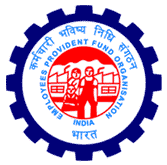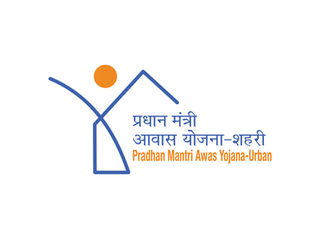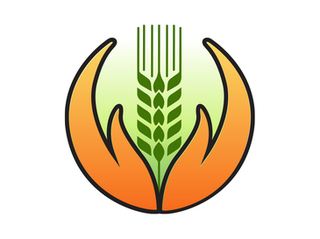Related Research Articles

National Insurance (NI) is a fundamental component of the welfare state in the United Kingdom. It acts as a form of social security, since payment of NI contributions establishes entitlement to certain state benefits for workers and their families.
Unemployment benefits, also called unemployment insurance, unemployment payment, unemployment compensation, or simply unemployment, are payments made by authorized bodies to unemployed people. In the United States, benefits are funded by a compulsory governmental insurance system, not taxes on individual citizens. Depending on the jurisdiction and the status of the person, those sums may be small, covering only basic needs, or may compensate the lost time proportionally to the previous earned salary.

The Employees' Provident Fund Organisation (EPFO) is one of the two main social security organization under the Government of India's Ministry of Labour and Employment and is responsible for regulation and management of provident funds in India, the other being Employees' State Insurance. The EPFO administers the mandatory provident fund, a basic pension scheme and a disability/death insurance scheme. It also manages social security agreements with other countries. International workers are covered under EPFO plans in countries where bilateral agreements have been signed. As of May 2021, 19 such agreements are in place. The EPFO's top decision-making body is the Central Board of Trustees (CBT), a statutory body established by the Employees' Provident Fund and Miscellaneous Provisions (EPF&MP) Act, 1952. As of 2018, more than ₹11 lakh crore are under EPFO management.

Bhupesh Baghel is an Indian politician serving as the 3rd and current Chief Minister of Chhattisgarh since 2018. He was president of Chhattisgarh Pradesh Congress from 2014 to 2019. He represents the Patan constituency in the Chhattisgarh Legislative Assembly since 2013 and from 2003 to 2008. He had been cabinet minister of Transportation in undivided Madhya Pradesh in Digvijaya Singh government from 1999 to 2003. He was first Minister for Revenue, Public Health Engineering and Relief Work of Chhattisgarh.
Social security, in Australia, refers to a system of social welfare payments provided by Australian Government to eligible Australian citizens, permanent residents, and limited international visitors. These payments are almost always administered by Centrelink, a program of Services Australia. In Australia, most payments are means tested.
Social security in India includes a variety of statutory insurances and social grant schemes bundled into a formerly complex and fragmented system run by the Indian government at the federal and the state level. The Directive Principles of State Policy, enshrined in Part IV of the Indian Constitution reflects that India is a welfare state. Food security to all Indians are guaranteed under the National Food Security Act, 2013 where the government provides food grains to economically vulnerable people at a very subsidised rate. The system has since been universalised with the passing of The Code on Social Security, 2020. These cover most of the Indian population with social protection in various situations in their lives.
Welfare in France includes all systems whose purpose is to protect people against the financial consequences of social risks.
Reetika Khera is an Indian development economist. Khera is Professor (Economics) at the Indian Institute of Technology, Delhi. She was Associate Professor at the Indian Institute of Management, Ahmedabad from 2018-20.

Employees' State Insurance Corporation is one of the two main statutory social security bodies under the ownership of Ministry of Labour and Employment, Government of India, the other being the Employees' Provident Fund Organisation. The fund is managed by the Employees' State Insurance Corporation (ESIC) according to rules and regulations stipulated in the ESI Act 1948.

Agriculture in India is highly susceptible to risks like droughts and floods. It is necessary to protect the farmers from natural calamities and ensure their credit eligibility for the next season. For this purpose, the Government of India introduced many agricultural social insurances throughout the country, the most important one of them being Pradhan Mantri Fasal Bima Yojana.

Government Medical College, Kollam, formerly ESIC Medical College, Parippally, is the first Government medical college in Kollam district, Kerala, India. It is situated 21 km (13 mi) south of Kollam city and 9.6 km (6.0 mi) east of Paravur town. The College was initially established by the Employees State Insurance Corporation, a Government of India establishment, and later acquired by the Government of Kerala.
Pradhan Mantri Jeevan Jyoti Bima Yojana is a Government-backed Life insurance scheme in India. It was originally mentioned in the year 2015 Budget speech by the then-Finance Minister, late Arun Jaitley in February 2015. It was formally launched by Prime Minister Narendra Modi on 9 May in Kolkata. As of May 2015, only 20% of India's population has any kind of insurance, this scheme aims to increase the number.

Atal Pension Yojana, formerly known as Swavalamban Yojana is a government-backed pension scheme in India, primarily targeted at the unorganised sector. It was mentioned in the year 2015 Budget speech by the Finance Minister Arun Jaitley. It was launched by Prime Minister Narendra Modi on 9 May 2015 in Kolkata.

Pradhan Mantri Awas Yojana (PMAY) is a credit-linked subsidy scheme by the Government of India to facilitate access to affordable housing for the low and moderate-income residents of the country. It envisaged a target of building 2 crore (20 million) affordable houses by 31 March 2022. It has two components: Pradhan Mantri Awas Yojana(Urban) (PMAY-U) for the urban poor and Pradhan Mantri Awaas Yojana (Gramin) (PMAY-G and also PMAY-R) for the rural poor, the former administered by Ministry of Housing and Urban Affairs and the latter by Ministry of Rural Development. This scheme converges with other schemes to ensure houses have a toilet, Saubhagya Scheme for universal electricity connection, Ujjwala Yojana LPG connection, access to drinking water and Jan Dhan banking facilities, etc.

The Pradhan Mantri fasal bima yojana (PMFBY) launched on 18 February 2016 by Prime Minister Narendra Modi is an insurance service for farmers for their yields. It was formulated in line with One Nation–One Scheme theme by replacing earlier two schemes National Agricultural Insurance Scheme (NAIS) and Modified National Agricultural Insurance Scheme (MNAIS) by incorporating their best features and removing their inherent drawbacks (shortcomings). It aims to reduce the premium burden on farmers and ensure early settlement of crop assurance claim for the full insured sum.

Ayushman Bharat Pradhan Mantri Jan Arogya Yojana(PM-JAY) is a national public health insurance scheme of the Government of India that aims to provide free access to health insurance coverage for low income earners in the country. Roughly, the bottom 50% of the country qualifies for this scheme. People using the program access their own primary care services from a family doctor and when anyone needs additional care, PM-JAY provides free secondary health care for those needing specialist treatment and tertiary health care for those requiring hospitalization.

The Third Ashok Gehlot ministry is the state cabinet of the Indian state of Rajasthan in the 15th Rajasthan Legislative Assembly headed by Chief Minister Ashok Gehlot.

The COVID-19 Pandemic Unemployment Payment was a government emergency aid program in the Republic of Ireland that provided monetary relief to those who face unemployment due to the COVID-19 pandemic, whether formerly employed or self-employed.
Pradhan Mantri Garib Kalyan Anna Yojana is a food security welfare scheme announced by the Government of India on March 26 2020, during the COVID-19 pandemic in India. The program is operated by the Department of Food and Public Distribution under the Ministry of Consumer Affairs, Food and Public Distribution. But the nodal ministry is Ministry of Finance.

The Godhan Nyay Yojana was introduced by the Baghel-led Chhattisgarh government on July 21, 2020, with the goals of promoting organic farming, generating new employment possibilities in both rural and urban areas, promoting cow rearing and cow protection, and providing financial benefits to cattle producers. According to the plan, the government will buy cow dung from farmers and livestock raisers for ₹2 per kilogram. Following procurement, members of the Women Self-Help Group will transform the cow dung into vermicompost and other products, which will then be sold to farmers as an organic manure for ₹8 per kilogram, discouraging the use of chemical fertilizers.
References
- ↑ "नौकरी छूटने पर बेरोजगारी भत्ता चाहिए? तुरंत कराएं रजिस्ट्रेशन- जानें कौन है याग्य और कैसे उठाएं फायदा". Zee Business (in Hindi). Retrieved 2023-07-19.
- ↑ "Centre extends Atal Beemit Vyakti Kalyan Yojana till June 30, 2022| Check eligibility criteria, how to apply and benefits". India Today . Retrieved 2023-07-19.
- ↑ Sharma, Yogima Seth (2023-02-20). "Labour ministry extends unemployment benefits under ESIC for another two years". The Economic Times . ISSN 0013-0389 . Retrieved 2023-07-19.
- ↑ "Can job loss insurance help if you get laid off? Here's the truth". CNBC TV18 . 2022-11-15. Retrieved 2023-07-19.
- ↑ Live, A. B. P. (2022-02-01). "छूट गई है नौकरी और चाहिए बेरोजगारी भत्ता तो इस तरह कराएं रजिस्ट्रेशन, उठाएं इस योजना का लाभ". ABP News (in Hindi). Retrieved 2023-07-19.
- ↑ "अब 30 जून 2022 तक ले सकेंगे अटल बीमित व्यक्ति कल्याण योजना का लाभ, इसमें नौकरी जाने पर सरकार देती है भत्ता". Dainik Bhaskar .
- ↑ "Unemployment scheme: Govt says claims through affidavit form no longer required". Mint . 2020-11-08. Retrieved 2023-07-19.
- ↑ Bureau, BW Online. "Under ABVKY Unemployment Benefit Enhanced To 50% From 25%: Centre". Businessworld . Retrieved 2023-07-19.
- ↑ "ABVKY स्कीम: बेरोजगारों को 3 माह तक पैसे देती है सरकार, अब मिली ये राहत". Hindustan (in Hindi). Retrieved 2023-07-19.
- ↑ "Atal Beemit Vyakti Kalyan Yojana". esic.
- ↑ "CG Launches Scheme for Unemployed Scholars, Check Eligibility and Benefits". Amarujala . Retrieved 2023-07-19.
- ↑ "Unemployment allowance: Govt giving 50% of salary to unemployed, here's how to avail". DNA India. Retrieved 2023-07-19.
- ↑ "Govt Scheme ABVKY: कोरोना काल में खो दी नौकरी, चिंता न करें इस योजना से घर बैठे पाएं आधी तनख्वाह". Amar Ujala (in Hindi). Retrieved 2023-07-19.